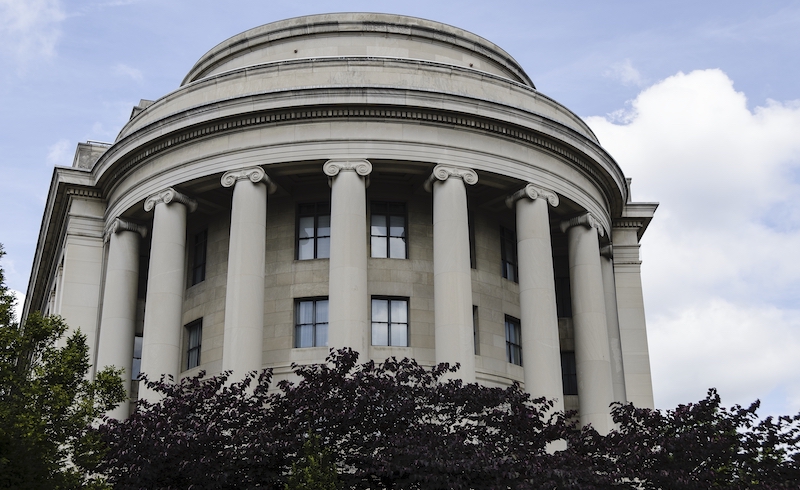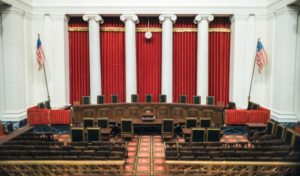
ACUS should discourage the submission of mass comments in the notice and comment rulemaking process.
Agencies issue rules based on evidence collected through a valuable tool: the notice and comment process.
Notice and comment begins when an agency issues a notice of proposed rulemaking. In the notice of proposed rulemaking, the agency describes a problem and proposes solutions through the proposed rule. Notices that propose major rules are long. They include a detailed discussion of the evidence supporting the agency’s reasoning for issuing a new rule, which can include studies describing the severity of the problem, its sources, and potential actions the agency can take to address the problem.
Upon publishing the notice of proposed rulemaking, the agency solicits comments from the public. Comments that are rich in data and analysis are most valuable to the agency. Those comments either support the agency’s views with additional evidence or seek to undermine the agency’s proffered evidentiary basis for the proposed rule.
After collecting comments, the agency makes a decision about whether to adopt the proposed rule or some variant of the proposed rule based on both the studies that the agency relied on in its notice and the data and analysis in the comments submitted in response to the notice.
If someone affected by the rule challenges it in court, courts require that agencies address all of the issues raised in all well-supported substantive comments and explain why the agency made its decision about the rule given all of the evidence it had before it. If the agency fails to fulfill that duty, the court rejects the rule as arbitrary and capricious.
Individual members of the public can file several types of comments that are helpful to agencies. They can file comments that are rich in data and analysis. They can file comments that bring to the agency’s attention studies that support or detract from the rule the agency has proposed. Sometimes, they can file comments based on first-hand experience that help an agency understand why its proposed rule or some alternative rule is either difficult or easy to comply with.
Individual members of the public also can participate in the notice and comment process in another way that is not helpful to the agency. Sometimes the companies and advocacy organizations that support or oppose a proposed rule organize mass comment campaigns to induce the public to file conclusory comments stating their support for or opposition to a proposed rule. The organizations then argue that the large number of comments prove that there is strong public support for the position taken in those comments.
These mass comments have no value in an agency’s decision-making process. Furthermore, scholars who have studied the issue conclude that the number of comments filed for or against a proposed rule is not, and cannot be, a reliable measure of the public’s views with respect to the proposed rule.
Mass comment campaigns create major problems in the notice and comment process. New York Attorney General Letitia James described many of these problems in a recent report on the results of her investigation of the most recent net neutrality rulemaking mass comment campaign. Depending on how it is resolved, the outcome of the net neutrality debate will have a major economic effect on many corporations.
This reality, coupled with the widespread and growing belief that the number of comments for or against a proposed rule has a major effect on the outcome of a rulemaking, yields the results that James documented. She labeled as fake 18 million of the 22 million comments that were filed. One college student filed 7.7 million comments in support of net neutrality. Internet service providers paid consulting firms $8.2 million to execute opposition strategies that included generating comments against net neutrality.
Two things are easy to predict if the public continues to believe the sheer number of comments are a key deciding factor for agencies. First, there will be even more millions of comments in the next net neutrality rulemaking as the warring parties escalate their efforts to maximize the “vote” on each side of the issue.
Second, in other rulemakings, firms with the most money at stake will replicate the behavior of the firms that were responsible for the mass comments in the net neutrality debate. Firms will put a lot of money into both “getting out the vote” and disguising fake comments as real comments.
The results will be massive, unmanageable dockets in which the noise created by the comments will make it increasingly difficult for agencies and reviewing courts to focus their attention on the substantive comments that provide the evidence that should be the basis for the agency’s decision.
Even mass comments that are not clearly fake, but that merely state a position for or against a proposed rule, provide no useful information to an agency. These comments are instead a reflection of the relative skill of firms or other organizations to persuade naïve members of the public to “vote” for or against a proposed rule.
The vast majority of the 4 million people who submitted genuine but purely conclusory comments in the most recent net neutrality docket had no understanding of the complicated effects of a decision to adopt or to reject net neutrality.
The Administrative Conference of the United States (ACUS) recently made recommendations about ways agencies can attempt to reduce the adverse effects of mass comments on the rulemaking process. Many participants in the ACUS project acted on the basis of their apparent belief that ACUS cannot and should not discourage the phenomena that are causing major problems in the notice and comment process. I do not share that belief.
ACUS should initiate a new project to decide whether to discourage mass comments, computer-generated comments, and falsely-attributed comments and, if so, how best to accomplish this end. ACUS can and should discourage these practices. It can do so by, for instance, encouraging agencies to assist in educating the public about the types of comments that help agencies make evidence-based decisions and the types of comments that do not help but instead create serious problems in managing the notice and comment process.
This essay draws on a separate statement that Professor Pierce submitted to ACUS on its Recommendation 2021-1 and which appeared in the Federal Register.
This essay is part of a six-part series entitled Mass Comments in Administrative Rulemaking.




